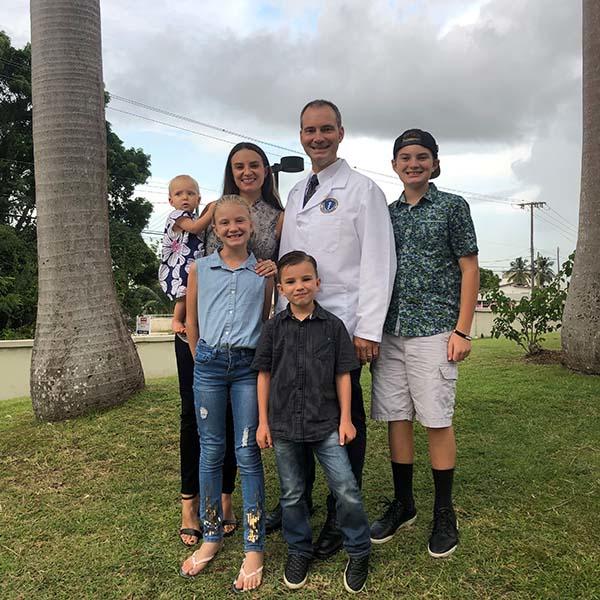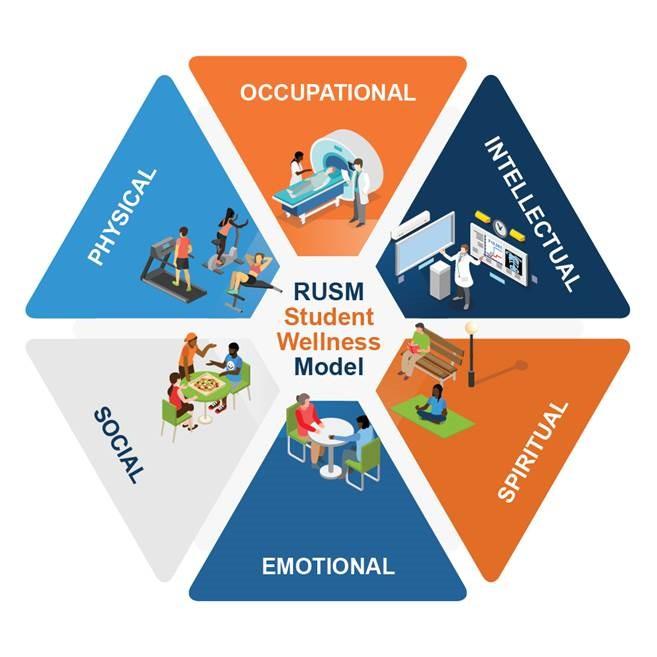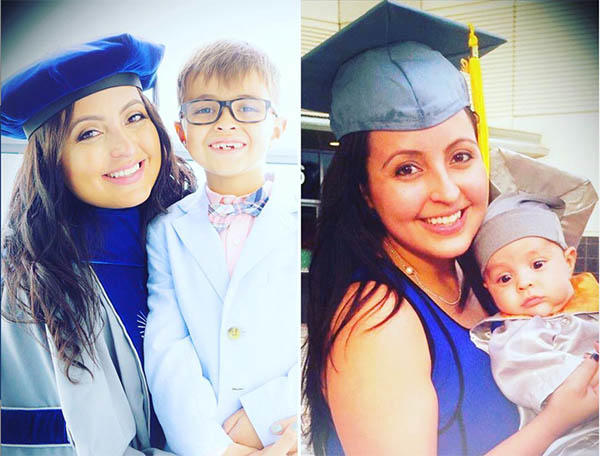They may be temporarily benched but this newlywed couple found a way to get back in the medical game. Ross University School of Medicine (RUSM) fourth-year medical students Yasmine Bargoti-Gosey and Bobby Gosey usually spend their days on clinical rotations at St. Joseph Mercy Oakland Hospital in Michigan. But since the COVID-19 pandemic, their routines are anything but normal.
“Before the crisis we would see patients, study for board exams and try to get in gym time. We had a schedule and a goal and now it’s on hold. We are having to fight from the outside looking in,” the couple explained. “We can’t fathom what doctors are experiencing right now and we can’t give relief to the frontline healthcare workers.” Not satisfied with their waiting status, the pair kept a vigilant eye on how to help colleagues and community members, and their persistence paid off.
Medical Students Helping Their Mentors
Welcome MICS – MI COVIDSitters, the platform the Goseys and 14 other selfless medical students created and launched this week, piggybacking off a structure used in Minnesota. The goal is to provide care for the families of frontline workers while they care for others, helping to offset the impact of school closures and increased work demands. Free services include childcare, pet sitting and completing household errands, and they are available to anyone giving back during COVID-19 from resident doctors to those keeping the hospitals clean.
In less than a week, the Goseys launched the website and hope to attract hundreds of medical student volunteers. Within 24 hours of the program going live, the co-presidents received their first assignment.
“We wanted to connect those who are frontline healthcare workers with volunteers – it’s the least we could do. We follow all CDC guidelines and have a risk mitigation team working with the Michigan Department of Health so everyone stays safe and healthy.” The couple was also excited to learn that other RUSM students are following suit by assisting with similar programs for frontline workers in New York and Maryland.
Coming Together as a Community
Before COVID-19 put their in-person clinical training on hold, Bobby and Yasmine said they were able to assist in developing patient care plans. “We wanted to offset some of the workloads for the physicians.” And in return, they were able to witness something amazing – “We are seeing the best of people and their willingness to volunteer in any capacity for frontline healthcare workers.”
Bobby said the ‘new normal’ has been refreshing because he’s able to realign his priorities. “I used to get stuck in my routine and forget to call my mom back,” he laughed. “You realize there are bigger things in life besides working – get outside, exercise, spend time with children. There’s a lot to gain from this crisis.”
Yasmine chimed in, “When this is all over, I hope people remember that everybody is affected by this – it doesn’t matter what color you are, your ethnicity, where you come from, or if you are rich or poor. That’s a powerful message – we’re all the same and we are all coming together right now for frontline workers in healthcare.”
Having Fun / Career Aspirations
Natives from Texas and Colorado respectively, Bobby and Yasmine enjoy movie nights together and have compromised when it comes to cheering at football games. Bobby said he was an avid college fan while Yasmine rooted for the pro teams; now they have found joy in watching both levels and have agreed on their favorites – University of Texas Longhorns and the Denver Broncos.
Since she was three years old, Yasmine knew the medical field was her chance to care for others, especially children. Specializing in pediatrics, she said she wants to give back to the next generation because “children are our world.” Bobby, who wants to practice anesthesiology, said his godmother influenced him with her nursing stories and said he always loved science and math. “I used to tell my parents I wanted to become a ‘nurse man’.”
Supporting Each Other ~ Always
The pair started at RUSM in 2016 on the island of Dominica and met each other a few semesters later while playing football on the beach. They started dating and soon were each other’s support system during the 2017 hurricane. They never looked back. Married last summer, Yasmine and Bobby said, “choosing to do everything together makes life a lot easier.” He said, “I have someone to bounce ideas off of and a study partner who keeps me accountable.” She added, “He picks up the slack when I’m having bad days.” And they both agreed, “things got a lot easier when we came together. We try to approach everything as a team.”
Who Are Frontline Health Workers?
Medical Personnel – Healthcare providers are often called to the frontlines of an emergency, reporting into work or to an impacted site to deliver life-saving interventions. In times of crisis, medical personnel are tasked with keeping the public safe, protecting our health, and providing care under extreme circumstances—often at risk to their own health. They are critical to keeping hospitals and health systems running so that people can receive the care they need in any situation.
University Essential Workers – Faculty and staff in roles that are critical to keeping the university safe and operational are defined as “essential personnel.” Depending on the situation, this can include colleagues in security, information technology, maintenance, housekeeping, and some business services who are necessary to ensuring operational continuity. Essential personnel are expected to report into work—often in a limited or modified capacity—when the university is otherwise closed for emergency situations, including weather, a natural disaster, or pandemic.
COVIDSitters in the News
Learn about other Rossies working with COVIDSitters in USA Today, The Baltimore Sun, on Yahoo! News, NY1-TV in New York, and stations in Chicago and Pittsburgh.
Appreciative and Thankful
We appreciate your commitment to the continued well-being of our RUSM community and support during this unprecedented time. Please visit RUSM for the latest updates regarding COVID-19.



